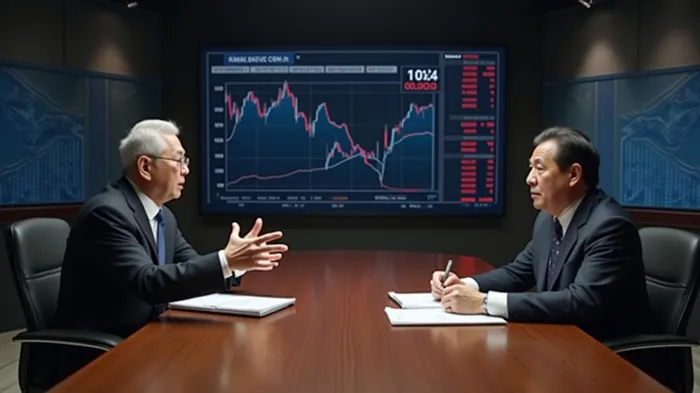Toyota Loses $100M/Hour Due to US Tariffs, Profits Drop 12%
Toyota, the world's leading automaker by sales, is grappling with significant challenges due to the ongoing trade war with the United States. The company is reportedly losing approximately 100 million dollars per hour due to tariffs imposed on imported vehicles and parts. This financial strain is a direct result of the trade negotiations between Japan and the United States, which have yet to yield a concrete agreement.
The tariffs, which were implemented in April and May, have had a profound impact on Toyota's operations. The company has been forced to absorb the costs of these tariffs, which have led to a significant drop in profits. In just two months, Toyota's profits have declined by 12 billion dollars. The company has not yet released its full-year forecast for 2025, but it is expected that the operating profit for the fiscal year ending in March 2026 will be 3.8 trillion yen (261 billion dollars), significantly lower than the 4.7 trillion yen (327 billion dollars) predicted by analysts.
Despite the challenges, ToyotaTM-- has maintained its production levels in the United States, where it operates 11 factories. However, the company still imports approximately 1.2 million vehicles and key components annually. This situation has drawn the attention of the White House, with President Trump criticizing Toyota for importing a large number of vehicles into the United States.
The tariffs have also affected other major automakers, with General Motors and Ford reporting significant losses. General Motors' annual profit is expected to decrease by up to 50 billion dollars, while Ford anticipates a 15 billion dollar loss for the year. Toyota's strategy of maintaining production levels and retail prices in the United States has contributed to its financial difficulties.
Toyota's CEO, Koji Sato, acknowledged the uncertainty surrounding the tariffs and the difficulty in formulating a response. The company is closely monitoring the situation and is committed to optimizing its fixed costs. However, the current trade environment has limited Toyota's ability to adjust its production in the United States, potentially impacting its ability to supply vehicles from overseas factories.
The trade negotiations between Japan and the United States are ongoing, with the next round of talks scheduled for late May. The Japanese government is hopeful that an agreement can be reached by June. However, the significant trade deficit between the two countries, amounting to 68.5 billion dollars, suggests that reaching a mutually beneficial agreement will be challenging.
In response to the new trade environment, other Japanese automakers have taken steps to mitigate the impact of tariffs. Nissan has suspended exports of SUVs produced in Mexico to the United States, while Honda has shifted production of its Insight hybrid to the United States. Mazda has also stopped exporting a model produced in a joint venture with Toyota in Alabama to Canada due to retaliatory tariffs.
Toyota has invested heavily in the United States, including a 13.9 billion dollar investment in a new battery factory in North Carolina. However, the company remains committed to maintaining its large domestic production base in Japan. The company's chairman, Akio Toyoda, has repeatedly pledged to keep domestic production at 3 million vehicles per year, which accounted for 310 million vehicles in 2024, or one-third of its global production.
Toyota's global sales in 2024 are expected to reach 10.8 million vehicles, with the United States accounting for nearly 25% of that total. While half of the vehicles sold in the United States are produced domestically, 30% come from Canada and Mexico, and 281,000 vehicles are imported from Japan. This includes popular models such as the 4Runner SUV, Prius hybrid, and various Lexus luxury vehicles.
The supply chain configuration of Toyota makes it a prime target for the Trump administration's tariffs, with its fate closely tied to the outcome of the U.S.-Japan trade negotiations. Toyota has responded to the White House's criticism by highlighting its significant investments in the United States, including a 21 billion dollar commitment since 2020. The company has also emphasized its direct manufacturing employment in the United States, which has increased from 25,000 in 2016 to 31,000.
However, Toyota's current challenges are exacerbated by the limited flexibility of its existing manufacturing facilities in the United States. The company's largest assembly plant in Georgetown, Kentucky, is already operating at near full capacity, with a utilization rate of almost 100%. This lack of flexibility could impact Toyota's ability to adjust its production in response to changing market conditions.

Stay ahead with real-time Wall Street scoops.
Latest Articles
Stay ahead of the market.
Get curated U.S. market news, insights and key dates delivered to your inbox.

Comments
No comments yet